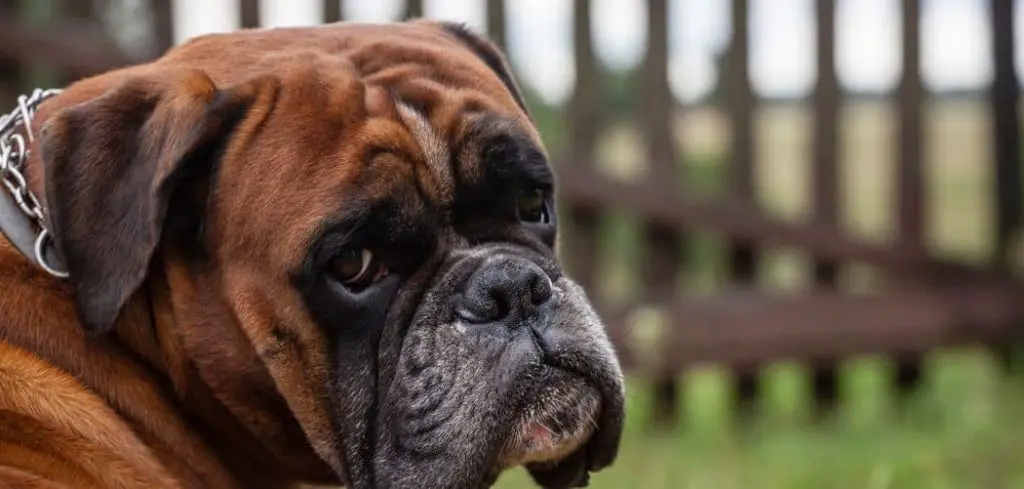When a dog keeps hacking up saliva, it can be concerning and confusing for owners. Saliva is normally swallowed, so seeing your dog repeatedly cough or hack it out signals that something is irritating the throat, mouth, or digestive system.
We outline the common causes of a dog hacking up saliva, what you can do at home, and when to seek veterinary help.
Dog Keeps Hacking Up Saliva — Why It Happens
A dog hacking up saliva is usually caused by irritation in the throat, airway, or stomach. This can happen when a dog has kennel cough, acid reflux, nausea, or even something lodged in the throat. In other cases, more serious conditions like bloat, pneumonia, or toxin exposure can also cause frothy saliva to be expelled.
While some causes are mild and temporary, others are emergencies that need immediate veterinary attention.

Dog Keeps Hacking Up Saliva: Common Causes
Kennel Cough and Throat Irritation
Kennel cough is one of the most common reasons a dog hacks or coughs up saliva.
This contagious illness irritates the trachea and upper airways, leading to a harsh, honking cough that sometimes produces spit or foamy discharge. Dogs often pick it up at kennels, grooming salons, or dog parks where airborne germs spread quickly.
Although most cases are mild, persistent hacking can wear dogs out and put stress on their airways. Puppies, seniors, and dogs with weaker immune systems are at greater risk of complications.
Read more: Dog Keeps Hacking Up Foam (What it really means)
Acid Reflux and Indigestion
Just like humans, dogs can develop acid reflux, where stomach acid flows back into the esophagus.
This irritates the throat and often leads to gagging, coughing, and hacking up saliva. Dogs with reflux may also lick their lips, swallow repeatedly, or refuse food after an episode.
If reflux happens frequently, it can damage the esophagus and worsen over time. Dogs with chronic symptoms should be seen by a vet for diagnosis and possible medication.
Nausea and Upset Stomach
When a dog feels nauseous, the body often produces excess saliva.
Instead of swallowing it, some dogs hack or spit it up. This can happen with motion sickness, after eating something unusual, or when dealing with stomach irritation from infections, parasites, or dietary changes.
If hacking saliva is paired with vomiting, diarrhea, or loss of appetite, it may point to a more serious gastrointestinal issue that requires prompt veterinary care.
Something Stuck in the Throat
A lodged object, such as a piece of bone, stick, or toy, can cause a dog to hack repeatedly while spitting up saliva.
This happens because the body is trying to expel the obstruction. Dogs may paw at their mouth, gag, or drool heavily at the same time.
Because airway blockages can escalate quickly, any suspicion of a foreign object should be treated as an emergency.
Gastric Dilatation-Volvulus (Bloat)
Bloat is a life-threatening condition where a dog’s stomach fills with gas and may twist.
Dogs experiencing bloat often retch or hack without producing food, sometimes bringing up only saliva or foam. A swollen belly, restlessness, and signs of pain usually accompany the hacking.
Large, deep-chested breeds are most at risk, but it can happen to any dog. If your dog hacks up saliva with a bloated abdomen, get emergency care immediately.
Respiratory or Heart Conditions
Certain respiratory infections or heart problems can cause fluid buildup in the airways, leading to coughing and hacking up saliva.
Pneumonia, chronic bronchitis, or even heart disease may result in frothy spit being expelled. Dogs may also struggle to breathe, tire quickly, or show blue-tinged gums.
These conditions require veterinary attention since they can progress quickly if untreated.
What to Do If Your Dog Keeps Hacking Up Saliva
If your dog hacks up saliva once or twice but seems normal otherwise, it may just be a temporary throat irritation or mild stomach upset. Offering water and monitoring for changes is often enough in these cases.
For dogs with reflux or empty-stomach hacking, try feeding smaller meals more frequently throughout the day. A late-night snack can also help prevent morning saliva hacking linked to bile reflux.
If your dog gulps food or water quickly, using a slow-feeder bowl or portioning meals into smaller servings may reduce hacking episodes.
Always ensure your dog is in a smoke-free, irritant-free environment. Household sprays, smoke, or dust can trigger throat irritation and make hacking worse.
Most importantly, trust your instincts. If your dog seems uncomfortable, lethargic, or isn’t improving, don’t wait — a vet visit is the safest option.
When to Call or Visit Your Vet
Some cases of a dog hacking up saliva are urgent and need professional care.
You should call your vet immediately if your dog is having trouble breathing, has a bloated or hard belly, collapses, or continues hacking with no relief. These may signal emergencies such as bloat or airway obstruction.
It’s also important to see a vet if the hacking happens multiple times a day, persists for more than 24 hours, or is paired with vomiting, diarrhea, loss of appetite, or weakness.
Young puppies, senior dogs, and pets with chronic health issues are at higher risk for complications, so extra caution is always advised.
Read more: Dog Constantly Hacking (Explained)
Key Takeaway
When a dog keeps hacking up saliva, the causes can range from simple stomach upset to life-threatening emergencies like bloat or airway obstruction.
Sometimes it’s nothing more than mild throat irritation, but repeated or severe hacking should always be taken seriously.
By monitoring your dog closely and seeking veterinary advice when needed, you can protect your pet’s health and get peace of mind knowing you’ve taken the right steps.
